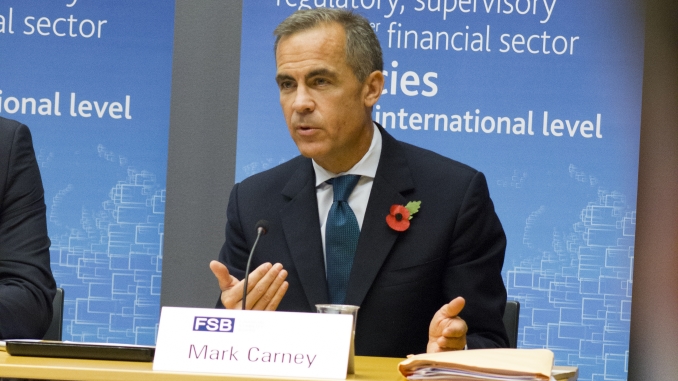
Banks assessing climate risks and opportunities in line with TCFD recommendations must look long term, make use of comprehensive scenario analyses, and adapt data collection, according to findings of a UN-convened pilot, which revealed positive impacts such as improved customer engagement.
The Task Force on Climate-related Financial Disclosures (TCFD), which was established by the Financial Stability Board, published final recommendations in June 2017 on how companies can disclose information about the risks and opportunities presented by climate change. The TCFD is industry-led and its recommendations on disclosures are voluntary.
On 24 April, 16 banks from four continents convened by the UN Environment Programme Finance Initiative (UNEP FI) published a jointly developed methodology that represents the first publicly available specialised guidance on how banks can assess climate-related risks and opportunities, and be more transparent about their exposure to such risks, in line with the TCFD recommendations.
The methodology is the culmination of a 10 month project, on which the banks and UNEP FI also worked with leading scientists and risk and investment management experts. The methodology is explained in a report that is the first of two, and focuses on transition risks – the risks that assets are devalued in a decarbonising economy. A second report from the working group, focussing on physical climate-related risks, is expected in June.
“Financial markets can become a catalyst for action on sustainability, but for that they need to become more long term-oriented,” said Erik Solheim, executive director of UNEP. “The beauty of the TCFD framework is that it encourages organizations to consider and disclose long term impacts.
“This change in perspective is what we need to achieve sustainable development.”
Participants in the project presented the methodology and described their experiences in a webinar hosted by Environmental Finance on 15 May.
Speaking on the webinar, Simone Dettling, banking programme team lead at UNEP FI, said the TCFD was “a big step” as it brought the importance of climate risks and opportunities to the attention of senior figures in banks and also to departments of banks, such as risk departments and business development departments.
She noted that the TCFD called for a forward-looking and longer-term assessment of risks, requiring new tools and approaches including, most importantly, the use of scenario analysis – not as it is currently used in stress tests, with one scenario used, but with various scenarios under which the 2° objective in the Paris Climate Agreement could be met – including some “extreme” scenarios – and how each of these could impact portfolios. Dettling said this was a key takeaway from the pilot phase.
“This is of course challenging, because it is very new,” she said.
“No single scenario is a prediction of the future,” she added. “What scenario analyses are for is to imagine all possible futures, and see how you fare in them, prepare for them, and come up with ways to monitor and try to understand in which direction we are going.
The other key takeaways were that banks must cooperate with scientists – two communities that are beginning to understand each other’s needs, said Dettling – and that the current collection and structuring of data is not fit for assessing the implications of climate change. For example, it is insufficient to know that a company is in the motor industry; rather, the bank must know whether a company builds fossil fuel or non-fossil fuel dependent cars.
Representatives of ANZ – a participant in the pilot phase – highlighted the positive impact that carrying out climate-related disclosures has had on customer engagement. The Australian bank has adopted TCFD recommendations on climate-related disclosures, publishing such disclosures alongside its results, and is now recommending that its customers also adopt the TCFD recommendations.
“Pleasingly, we’ve already had customers approach us understanding that we’ve used the TCFD recommendations to inform our own disclosures, and they’re interested in how we’ve gone about that and the earlier work we’ve done in scenario testing,” said Ben Walker, head of sustainable development at ANZ. “There have been some great two-way conversations. We’re now able to encourage those customers and to help shape their reporting by sharing some of the lessons we’ve learned.
“It’s bearing fruit already.”
He said that the bank has also taken questions from investors, who, he said, are looking for comfort that the bank is assessing and managing climate risks.
“They want to see we are fluent in the language of climate risk and opportunities, and I have to say that adopting and seeking to align as closely as possible with the TCFD recommendations has served us well at this stage,” he said.
UNEP FI is also currently in the process of recruiting investors for a project piloting TCFD-aligned assessments and disclosures in the investment industry. Some 13 investors have already joined the working group.
UNEP FI is also expected to announce soon an initiative to establish Principles for Responsible Banking, in line with the existing Principles for Responsible Investment and Principles for Sustainable Insurance. BBVA has announced it will participate in the scheme, and said that at least 24 banks across five continents will take part.
Concrete, mandatory actions urged
While the Principles for Responsible Banking will, like the TCFD, be a voluntary initiative, there have been ongoing calls for firmer action.
The Bank of England was on Monday urged to take the lead on climate-related disclosures and make it mandatory for UK banks to require their large corporate borrowers to disclose in line with TCFD recommendations, by Chris Hohn, managing partner and portfolio manager of hedge fund The Children’s Investment Fund.
In an open letter addressed to Mark Carney, governor of the Bank of England and chair of the Financial Stability Board, the activist investor said the current disclosure regime is failing to provide adequate information on serious climate-related risks to which UK banks are exposed through their loan portfolios.
“Failing to act risks endangering the long term stability of the UK banking system,” said Hohn. “It may also expose banks to litigation for inadequate disclosure under existing law.”
He suggested that as the Royal Bank of Scotland is fully controlled by the UK government, its board should set an example and require such disclosures from their borrowers. He added that the Bank of England should run annual stress tests on banks’ resilience to climate risks, setting capital requirements accordingly.
Hohn praised Carney, who sits on the TCFD, for his role in raising awareness of the importance of climate-related risks to the financial system.
“It is clear that your early understanding of the seriousness of climate change risks for the financial system must now urgently be translated into concrete and mandatory actions in order to credibly manage the systemic challenges posed by climate change,” he said.
Photo credit: Bank of England/James Oxley



